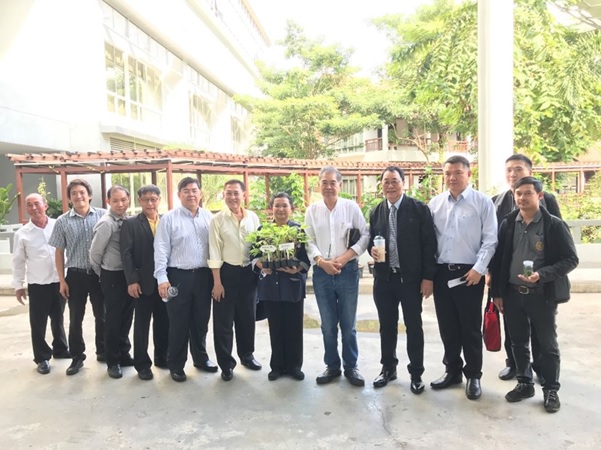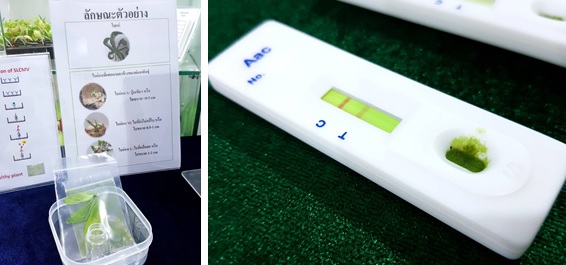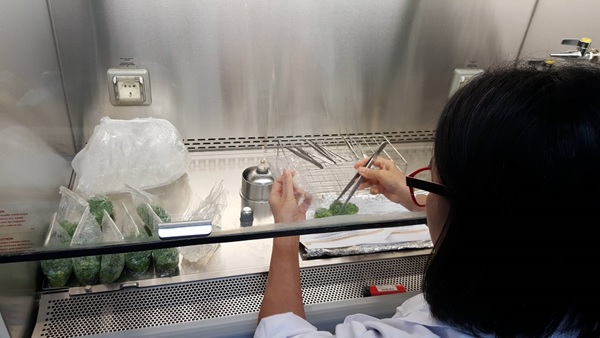Cassava mosaic disease caused by Sri Lankan cassava mosaic virus (SLCMV) was recently reported in Thailand. Severe outbreak of mosaic disease can potentially destroy as much as 80-100% cassava production in Thailand.
To prevent catastrophic outbreak of SLCMV, NSTDA hosted a meeting with 30 representatives and members of the Thai Tapioca Trade Association, the Thai Tapioca Starch Association, the North Eastern Tapioca Trade Association and the Thai Tapioca Products Factory Association to introduce potential technologies and solutions to this problem. The solutions introduced at this session were detection assay for disease screening and tissue culture technology and mini stem cutting technique to produce disease-free, small cassava cuttings. All these technologies were successfully developed by BIOTEC researchers.

Cassava is mainly propagated by stem cuttings. Farmers can plant infected stems unknowingly because the stems contain no leaf – the part that shows mosaic symptom. The ability to detect the disease to screen the stems prior to planting will help mitigate the problem. BIOTEC research team has developed an enzyme-linked immunosorbent assay (ELISA) for the detection of cassava mosaic disease. The test has been proven to be efficient and accurate, with an average cost of 13 THB/sample which is far cheaper than commercial imported tests. This technology is available for licensing to any interested public or private enterprise.

Another potential technologies are the tissue culture and mini cutting techniques which enable rapid mass production of disease-free plant materials. Tissue culture technology can multiply plant materials 3 to 4 times in 4 weeks; whereas the use of mini-cuttings lowers production costs.

After the meeting, Mr. Anuwat Ruthaiyanont, President of Thai Tapioca Starch Association comprising over 100 cassava starch factories revealed that his association is planning to set up laboratories immediately to employ NSTDA technologies to produce disease-free plant materials for farmers and assist farmers with disease screening. Time is of the essence as plant materials will be in high demand after cassava harvesting season which is from November 2019 to March 2020.
